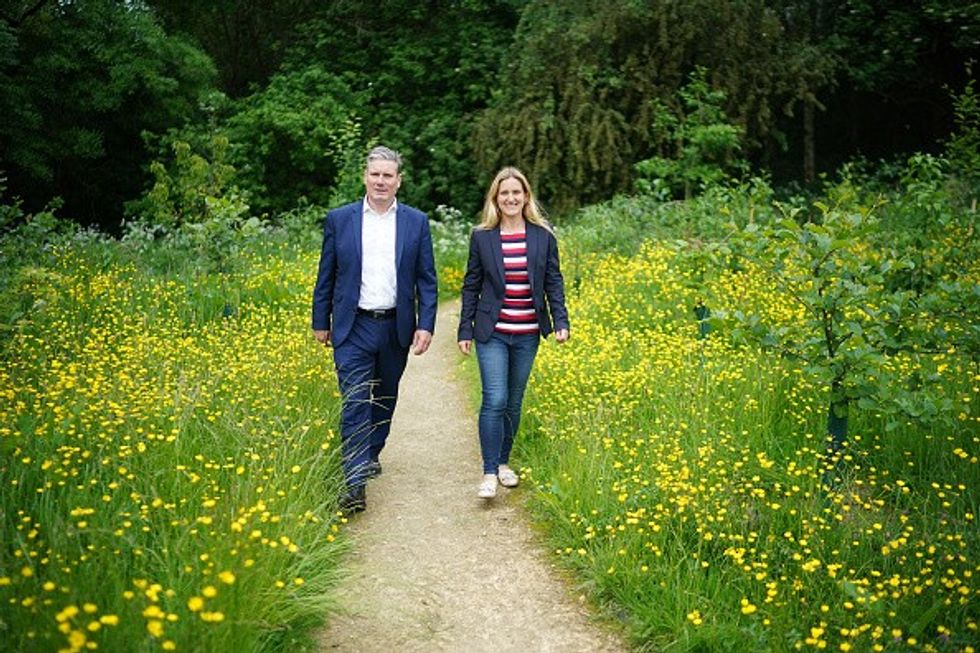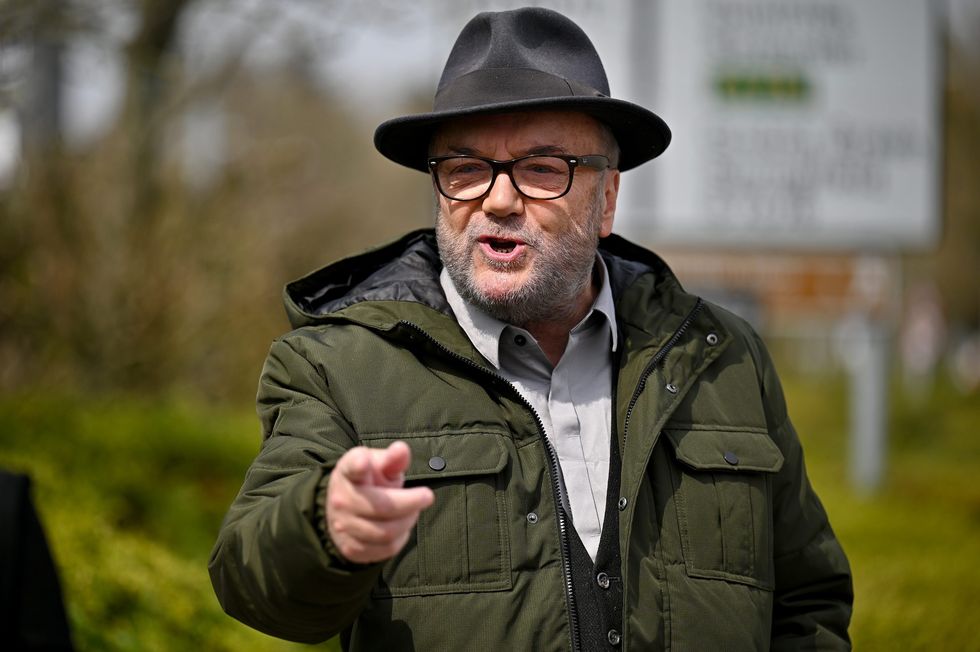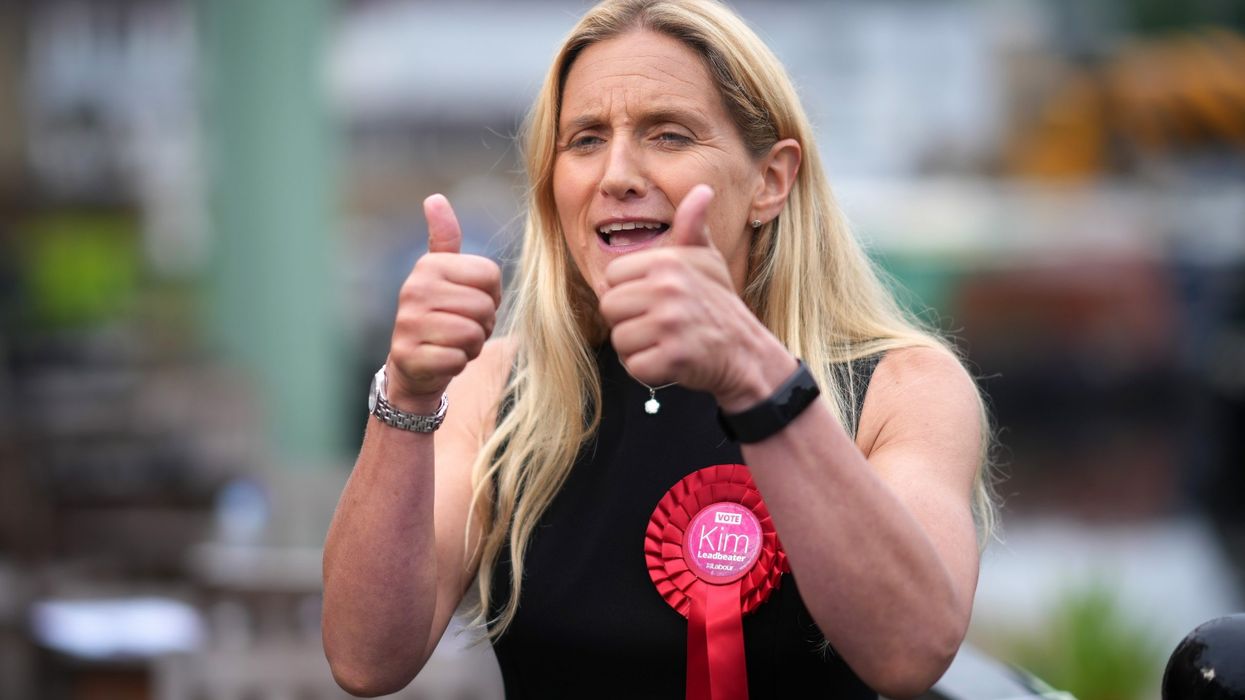LABOUR has been urged to engage with Asian communities and “treat them as individuals”, as polls suggest its popularity with Muslim voters is dwindling.
The call comes after the party’s victory in the Batley and Spen by-election last week, with candidate Kim Leadbeater, the younger sister of Jo Cox, who was fatally stabbed by a white supremacist in the constituency in 2016, securing the seat with a narrow margin of 323 votes.
However, the by-election has raised questions about Labour’s relationship with Asian communities. A recent Labour Muslim Network poll said while Muslim voters traditionally cast their ballot for Labour candidates, support for the party was waning.
Some Muslims are reportedly upset about Labour leader Sir Keir Starmer’s approach on the Israel and Palestine issue during the recent Gaza raids, and for the party’s stance on Kashmir. The south Asian region is claimed and administered by both India and Pakistan. Under previous leader Jeremy Corbyn, Labour adopted a resolution on human rights “abuses” in Kashmir at its annual conference, which was criticised by UK and Indian MPs as well as the wider Asian community in Britain.
A controversial Labour campaign leaflet distributed to Muslim voters in the west Yorkshire Batley and Spen constituency, which featured a picture of prime minister Boris Johnson alongside his Indian counterpart Narendra Modi, was also criticised.

Andrew Harrop, general secretary of the Fabian Society, said the opposition had to ensure it upheld “strong ties” with south Asian communities. “(The party can do this) by talking, listening, and making sure they are represented within the Labour party at every level,” he told Eastern Eye.
But Harrop warned that it would be a mistake to assume historical and cultural issues (such as Kashmir) were the sole factors in deciding how the Asian community votes. “South Asian voters in Batley and Spen have much the same concerns as everyone else in the constituency,” he said. “They care about crime, jobs, schools and healthcare.”
The party should not treat any group of voters as a single block, with narrow policies targeted just at them, Harrop added. “It is patronising and creates division. Labour should be treating everyone as individuals and trying to build bridges between people from different backgrounds,” he said.
Talking about the loss of confidence from the Muslim population, Labour’s Naz Shah admitted the party needed to focus on bringing back those voters “into the heart of the Labour party”. The Bradford West MP told Channel 4 News: “(The Labour party) is the ethnic minority population’s natural home.”
Fellow Labour MP Shabana Mahmood admitted the party did have “significant issues” while attempting to engage with Muslim voters in Batley and Spen. “George Galloway was able to go in and spread a politics of fear among people,” the Birmingham Ladywood representative told Sky News. “We also had a lot of propaganda being spread about Labour’s position on some issues across WhatsApp and other social media platforms.”
Galloway, who collected one-fifth of the vote with his Worker’s Party group, was accused of campaigning for an “anti woke” agenda which attacked LGBT rights, the trans community and sex education in schools.

Nick Lowles, CEO of anti-racism group Hope Not Hate, said Galloway’s “negative, angry and aggressive campaign created a toxic climate on the ground”.
Labour’s Yasmin Qureshi MP agreed that Galloway’s campaign “sought to incite division” within the community. “(Galloway’s campaign) resorted to dirty tactics and lied about Labour’s campaign,” the Bolton Southeast MP told Eastern Eye. “He will leave Batley and Spen and will not take a second to look back.”
Harrop agreed that the close race was partly down to Galloway’s “toxic and divisive campaign”. “It won the support of a share of the seat’s Asian voters, making this a very volatile election,” he noted.
However, Harrop said Galloway’s campaign was ultimately one of the factors which may have helped Labour to victory. “The toxic politics introduced by George Galloway in a seat that has seen more than enough of hatred led to a reaction, with a lot of people wanting to reward Kim Leadbeater for her decency and bravery,” he said.
Harrop also blamed the Brexit debate which he said was still affecting Labour’s relationship with many of its historic voters in the north of England. “(Tory prime minister) Boris Johnson has been seen to deliver Brexit, and now has successfully rolled out the vaccine programme,” he said.
Shah admitted the party could not dismiss the small margins of the win. “There is lots of work for us to do,” she said. “But we’ve got an opportunity now, and what this win demonstrates is that unity and hope survives. (It’s) about bringing our party together and the hope we can get for people, our members and the wider people of Great Britain when we head into the next general election.”




